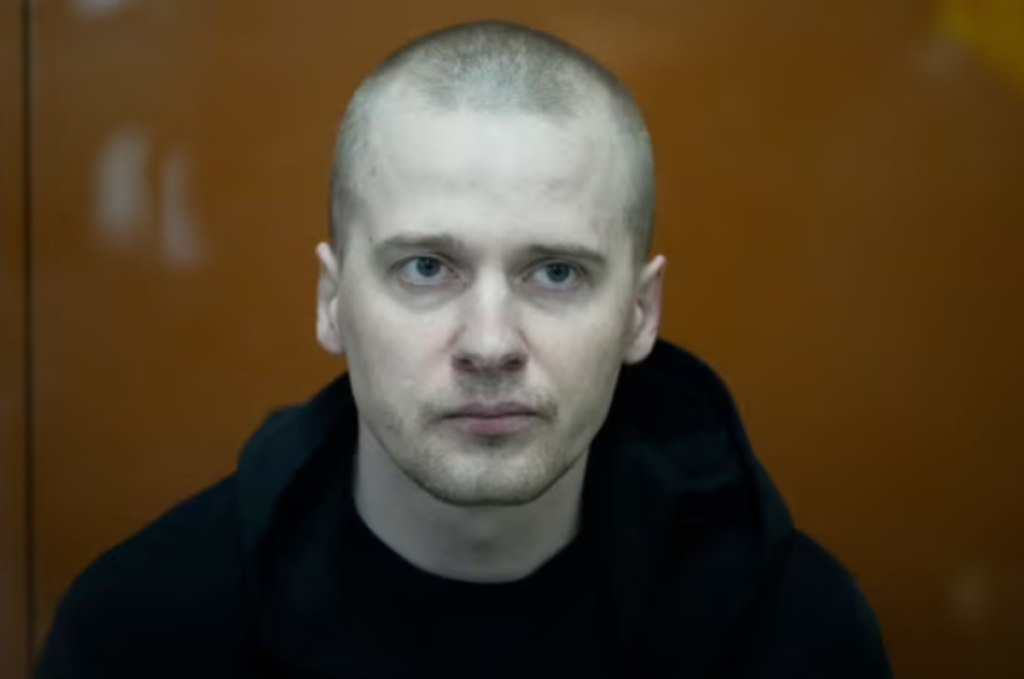Ukrainian Man Jailed for Life in Car Bombing of Russian Nationalist Zakhar Prilepin

In a significant ruling, a Russian court has sentenced a Ukrainian man, Alexander Permyakov, to life in prison for his role in a car bombing that severely injured nationalist writer Zakhar Prilepin. The attack occurred in May 2023 in the Nizhny Novgorod region and also resulted in the death of Prilepin’s driver.
Prosecutors allege that the bombing was carried out under the direction of Ukraine’s security services, further complicating the already tense relations between Russia and Ukraine. Permyakov, originally from Ukraine’s eastern Donbas region, previously fought alongside Russian-backed separatists, adding a complex layer to his involvement in the incident.
Zakhar Prilepin is a controversial figure, known for his strong support of Russia’s military actions in Ukraine. His nationalist rhetoric has made him a prominent voice in favor of the pro-Russian insurgents in eastern Ukraine. Despite suffering serious injuries from the bombing, Prilepin remains active in promoting Russian nationalism.
This case reflects a disturbing trend of violence targeting nationalist figures in Russia since the onset of the conflict. In August 2022, Darya Dugina, the daughter of a Kremlin-linked ideologue, was killed in a car bomb attack believed to be aimed at her father. Additionally, in April 2023, military blogger Vladlen Tatarsky was killed when an explosive device hidden in a gift detonated during a public event. Russian authorities have attributed both incidents to operatives linked to Ukraine.
The conviction of this Ukrainian man for the bombing underscores the personal and symbolic nature of the conflict, as acts of violence ripple beyond the battlefield. While the Kremlin accuses Ukraine of orchestrating these attacks, Kyiv has consistently denied involvement. This ongoing narrative continues to heighten tensions and shape public perception in both nations.
As the war unfolds, the life sentence handed down to Permyakov serves as a reminder of the intricate connections between individual acts of violence and the broader geopolitical struggle, illustrating how the conflict has permeated everyday lives and public discourse.
